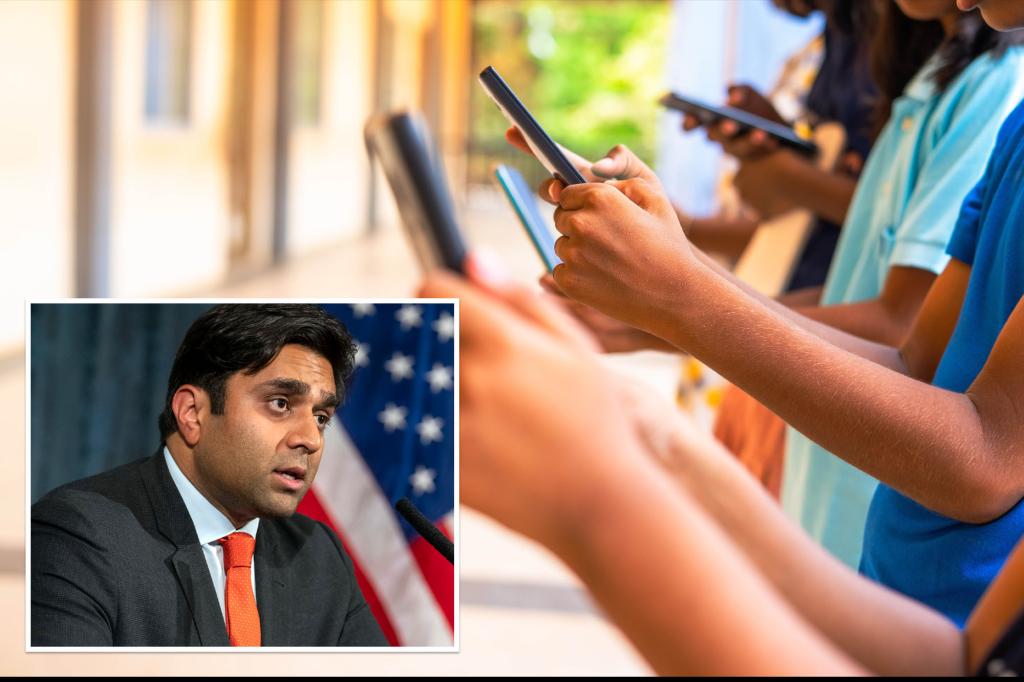Social media has become a growing concern for children, prompting the city health commissioner to recommend that parents do not give their children cell phones until they are at least 14 years old. Pediatricians are also advised to discuss social media use with parents and children during check-ups. Research has shown that adolescents using social media are at a greater risk of experiencing mental health issues such as depression and anxiety. The city Department of Health and Mental Hygiene is urging parents to delay giving their children smartphones until age 14 and to consider starting them off with a phone that does not have the ability to access social media.
Additionally, pediatricians should include discussions about the dangers of overexposure to smartphones and social media as part of a “family media plan” to regulate or limit usage. Governor Kathy Hochul is currently advocating for a ban on smartphones in schools and is conducting a listening tour to explore ways to implement this. In June, a law was passed to give parents more control over social media usage on apps like TikTok and Instagram. The city’s top doctors have cited statistics showing an increase in depression among local youth over the past decade, with social media addiction potentially playing a role in this trend.
Recent data from the city’s youth risk behavior survey indicates that in 2021, 38% of high school students reported feeling so sad or hopeless that they stopped engaging in their usual activities, compared to 27% in 2011. Additionally, suicidal ideation among this group has increased by more than 34% from 2011 to 2021. Social media use has become widespread among various age groups, with 54% of children, 93% of teenagers, and 78% of parents using some form of social media. Research has shown that children who use social media are more likely to experience anxiety, while teenagers who use social media are at greater risk for anxiety and depression.
Furthermore, a University of Michigan study revealed that many adults experience increased stress after frequent checks of their smartphones. Some individuals are not good role models for children, displaying inconsiderate behavior while absorbed in their phones. For example, at a gym in Queens, three customers were observed sitting on exercise machines with their heads down, scrolling through their smartphones and disrupting the workout routine. The city’s top doctors are encouraging healthcare professionals to share resources with patients, including the Department of Education’s Digital Citizenship Curriculum, the NYC Teenspace mental health support program, and the Health Department’s guide for parents on social media and youth mental health.
In conclusion, the detrimental effects of social media on mental health have prompted calls for increased awareness and regulation of smartphone and social media usage among children and adolescents. Parents are advised to delay giving children smartphones until they are at least 14 years old, and pediatricians are urged to discuss these issues with families during check-ups. Policy initiatives, such as potential bans on smartphones in schools and laws providing parents with more control over social media usage, are being pursued at the state level. It is important to address the growing rates of depression and anxiety among youth and promote responsible social media use among both children and adults.


